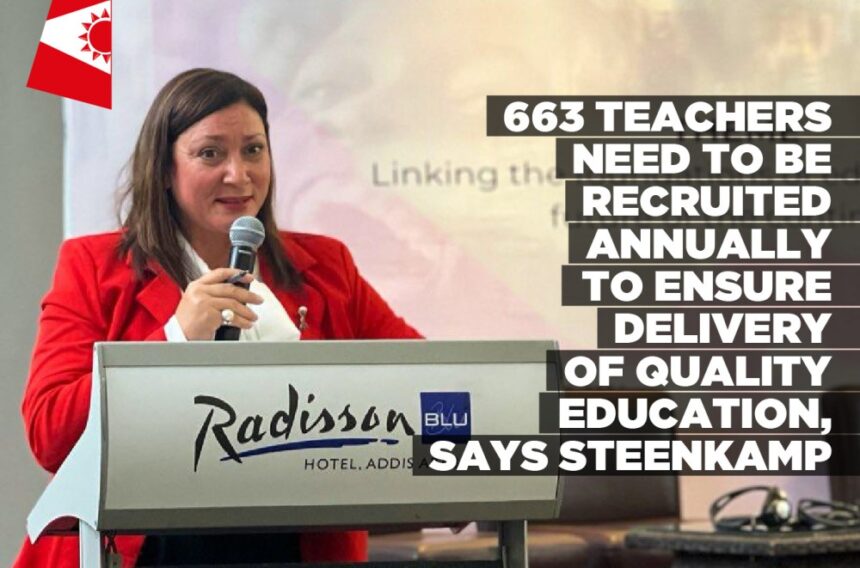Staff Reporter
THE Executive Director (ED) of the Education Ministry, Sanet Steenkamp, said that the country needs to recruit 663 teachers annually to achieve the United Nations’ (UN) Sustainable Development Goal 4 (SDG4), which aims to ensure inclusive and equitable quality education.
“With the impact of the COVID-19 pandemic, we are also experiencing high teacher mortality rates, which is impacting on the allocation of teachers to address the learner teacher ratios, especially in the junior primary phase. For instance, in 2021 alone, we lost 400 teachers and 218 in 2022. As such, for us to achieve SDG Goal 4, we would need to recruit 663 teachers annually,” she said.
Steenkamp made these remarks at the Human Capital Africa (HCA) Pre-AU Summit Roundtable in Addis Ababa, Ethiopia. The event aims to provide a roadmap for action for the Ministerial Coalition, focusing on foundational learning, educational reform, and delivering a collective message to the AU to highlight the urgency of addressing the learning crisis and influencing policy at the highest levels.
The ED also expressed concerns about the insufficient investments directed towards the country’s pre-primary education, highlighting that neglecting pre-primary education creates challenges later in learners’ educational journeys.
Steenkamp explained that, since independence, Namibia has prioritized access to quality education, with the sector receiving the highest national budget allocation, exceeding 20% of the total budget and 8% of the country’s Gross Domestic Product (GDP). Despite this, she added that spending remains disproportionately directed towards operational expenses, impacting both quality and equitable access.
“Over the five-year period to 2022/23, spending on salaries averaged 80.3%, compared to teaching and learning materials (13.2%), and infrastructure (3.5%),” Steenkamp said.
The ED further disclosed that primary education received two-thirds of the education ministry’s budget, while pre-primary education accounted for only about 3.1% of the ministry’s budget. This, she stressed, contributes to widening the gap in enrolment rates between pre-primary and primary phases.
“Due to limited investments in pre-primary education, only 55.1% of pre-primary-aged children receive a year of pre-primary education, leading to nearly four in 10 children entering Grade 1 without adequate school readiness,” she added.
Steenkamp said that this contributes to high repetition rates in Grade 1 (17.3%), Grade 4 (18.3%), and Grade 5 (17%), along with low retention and performance. Furthermore, she stressed that the retention rate of 21.3% in Grade 10 further proves that many learners complete primary education with insufficient foundational skills.
“The cumulative impact of repetition and dropout rates results in a significant loss of investment, potentially irreversible in terms of education outcomes, human capital development, learners’ future earnings, and efforts to reduce unemployment and poverty levels. This early childhood period offers a critical window of opportunity to invest in shaping the trajectory of a child’s holistic development and build a foundation for their future,” Steenkamp said.



Leave a Reply